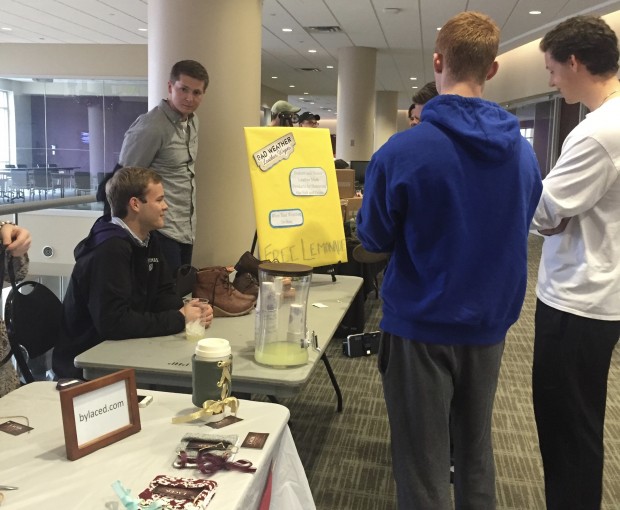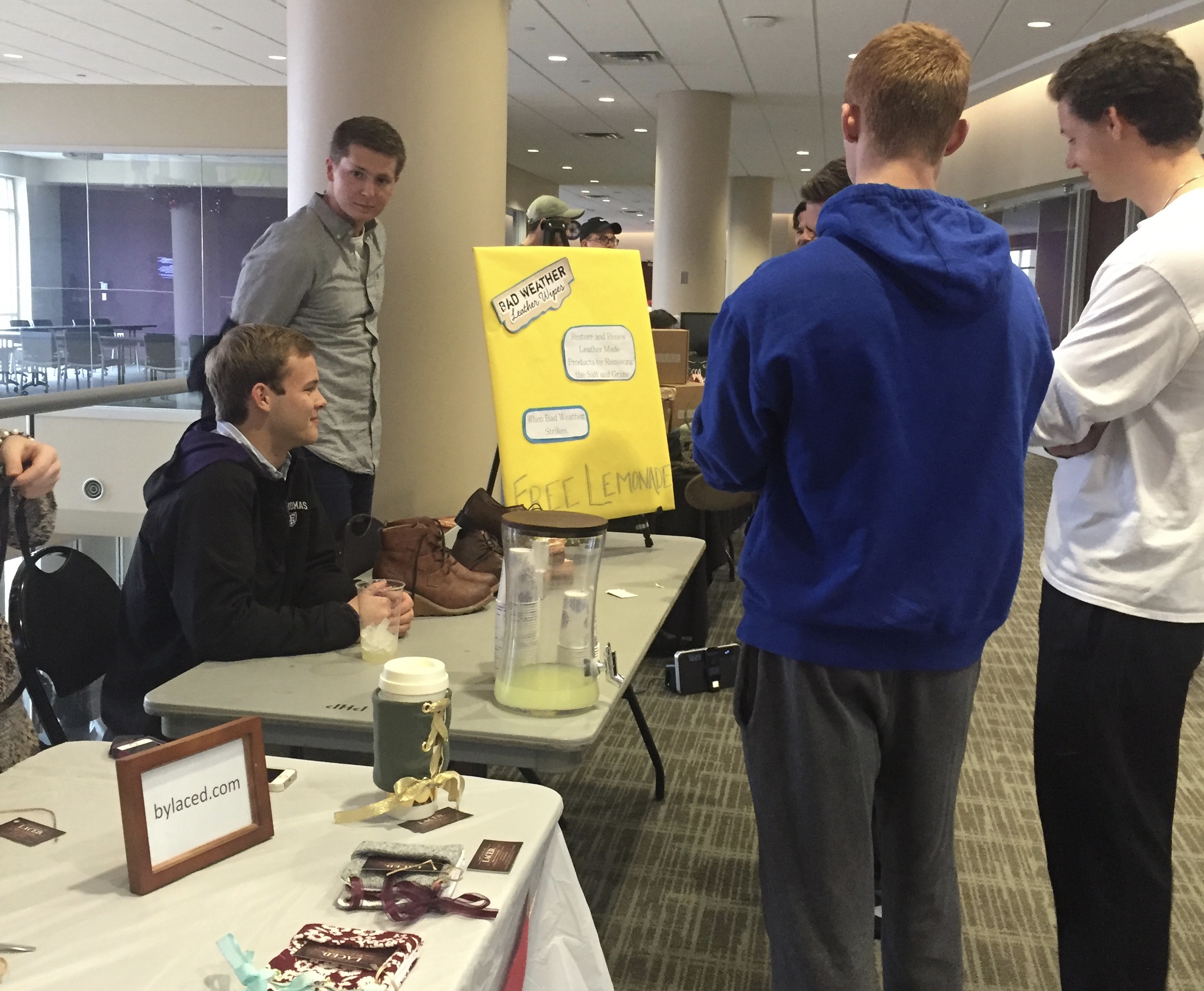
Students in Entrepreneurship 200 were able to display and sell their final products in a showcase last week, the culmination of a semester during which students created and launched their own businesses.
This is the fourth year this course has been offered at St. Thomas. Alec Johnson, one of the professors who developed the course, said it has undergone significant changes since the course was known as the Lemonade Stand Class.
“When we started the class, we had big constraints around the project, that it somehow had to do with lemonade or the word lemon. Constraints are really important because they tend to spur creativity,” Johnson said. “Over time we wanted to release the constraints to see where the projects might go.”
While the lemon constraints have been lifted, students are still required to earn $200 in revenue and create a brand that can continue after the semester is over. One of the course’s successes was Love Your Melon, an internationally recognized brand.
Many of the students are paired with people they do not know and must leverage their varying skills and passions to create a successful business. Sophomore Tina Witzel expressed the necessity of building trust when put in this situation.
“It was interesting to work together as a team. It takes a group project and kind of explodes it because you become business partners,” Witzel said. “We are putting more on the line than a typical group project or presentation, so you really have to work together and trust each other.”
The project requires many hours of work outside the classroom to assemble, market and sell the products. Sophomore Emily Costello said all of her group’s hard work paid off in the end.
“I think that the most rewarding part is just seeing it catch fire with everyone,” Costello said. “It’s great to see it spread and to see people around us notice what we are doing.”
While not required, many groups include a social mission or work in various ways to give back to the community through local causes and charities. Some students do this by operating as a nonprofit, crowdsourcing or donating a portion of sales to a charity. Johnson thought one reason students usually do this is because of St. Thomas’ Catholic intellectual tradition.
One group this semester chose to collaborate with already-established businesses to promote their causes. Sophomore Alexa Castonguay said her group felt grateful to be treated professionally and enthusiastically by the companies with which they worked.
“They knew we were students, and they really wanted to be able to help us out,” Castonguay said. “Everyone started somewhere, and I think they were excited to see that we had a good-quality idea.”
The course is designed to get the students acclimated in the entrepreneurship field in a low-risk setting. Junior Cody Miller found the course material relevant to building a real brand and to a future career in business.
“As we were going through this process, things that we were covering in class, like case studies, correlated perfectly with the stage we were at in developing our business,” Miller said. “I thought it was an awesome correlation between what we were learning and the outside experience we were gaining outside of the classroom.”
The other Entrepreneurship 200 professor, Jay Ebben, said the class tries to create better problem solvers and open their students’ eyes to thinking that this is something they can do.
“We really strive for three pieces,” Ebben said. “Confidence that they have the ability to go out and inspire others and create something of value; community in understanding that if they build a network of peers and mentors, the amount of value they can create is greater; and connection in that what they do and what they achieve contributes to a greater world around them.”
Claire Noack can be reached at noac8702@stthomas.edu.



